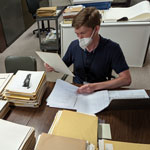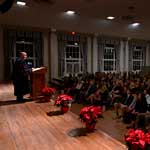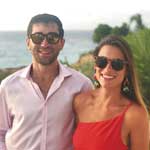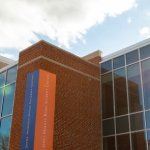
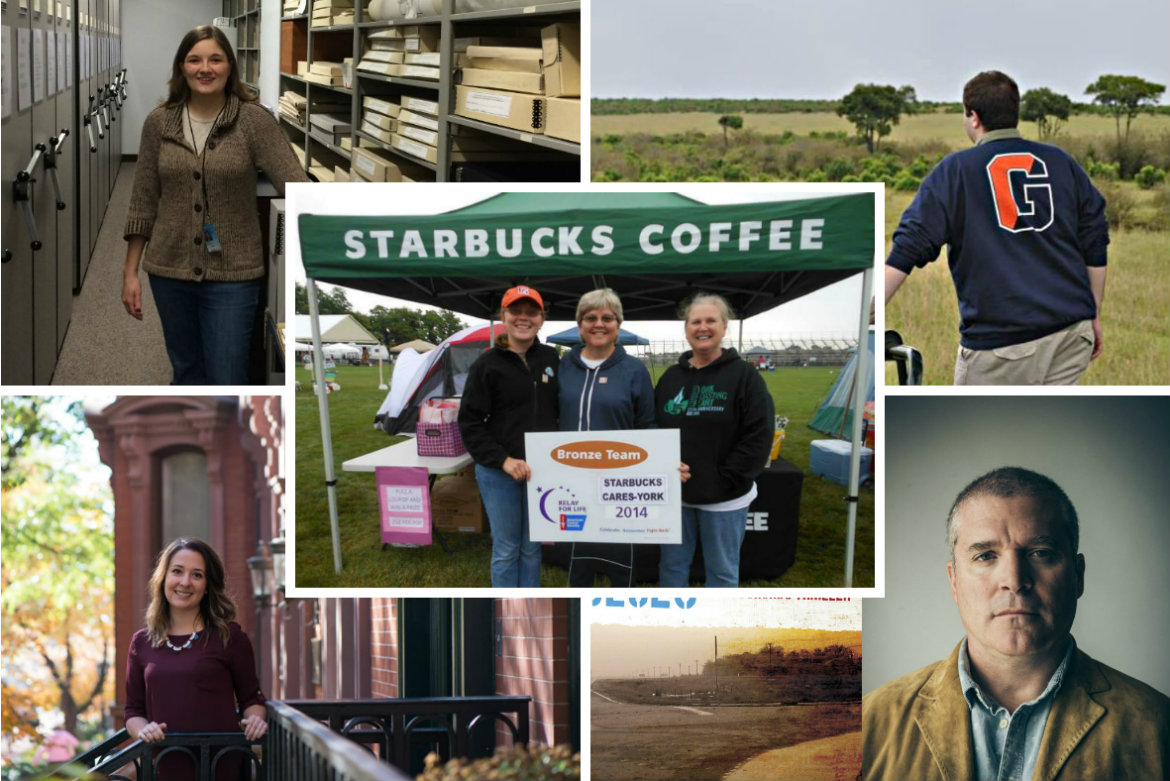
It’s a time-honored tradition—students declare a major in history (or art, or philosophy, or a language), and every holiday, break, and summer vacation, are peppered with questions from their families about what they possibly could have been thinking. What do (or could!) these students want to do with a degree in that field, unless they plan on teaching?
It’s a question that Professor and Chair of the History Department Tim Shannon has posed to him frequently.
According to Shannon, the question is not what can you do with a history degree, but what do history majors do?
Apparently, only a small percentage end up in careers that are directly related to the field of history, and even fewer end up teaching.
Most follow a path that leads them to a breadth of career plans across a multitude of industries. Some work their way into the communication or media industry. Others find themselves working in government—think of the Departments of State, Defense, and Homeland Security—or in Congress itself. More still work in social services, finance, information technology, business, law, research—you name it, they’re there.
“Just as everyone who majors in biology or health sciences does not go on to become a doctor, not everyone who studies history becomes a historian,” Shannon said. “In fact, a significant amount of our alums find themselves working in fields that have tangential connections to history, due in large part to the skills that history teaches—how to research, how to write, and how to think for yourself.”
Check out where a handful of our history alums have ended up, and get a more comprehensive view of their professional lives through our LinkedIn and alumni success pages.
Jared Leon ’14, Anti-Money Laundering/Terrorism Financing Analyst, J.P. Morgan
“I’m an anti-terrorism analyst, so everyday I need to dig deep into sources and always take holistic views of various situations. In fact, it’s what drew me to the history department when I first took one of Prof. Carmichael’s classes—the analytic needs and assessment styles that are required when diving into research. Now, I use those skills in a high security environment everyday.”
Chelsea Bucklin Fairley ‘10, Archivist and Cataloger, Freer & Sackler Gallery Archives at the Smithsonian Institution
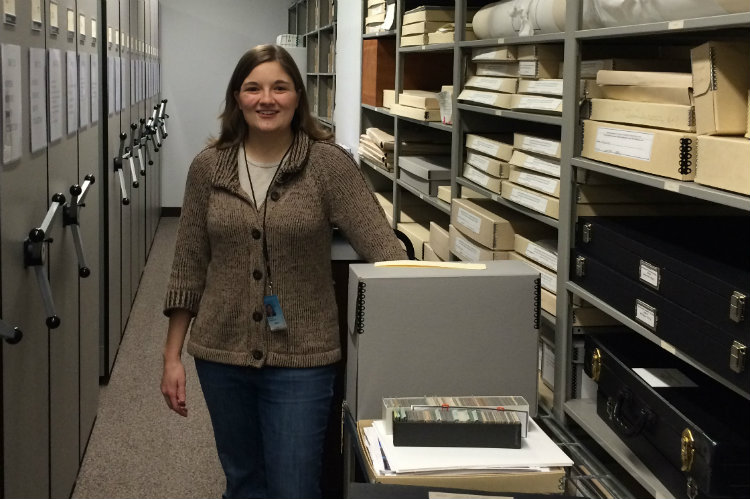
“Being a cataloger requires me to look at an object and think of all of the possible ways in which someone might search for it online. It’s basically a more complicated and professional version of using hashtags. This is the most important aspect of my job; we want people to connect with our collections, and work every day to make those collections more accessible. It’s very fulfilling to put a collection online and then receive an inquiry from a researcher half-way around the world who now has the opportunity to view those materials from their own home.”
Eyre Price ‘86, Novelist and Attorney
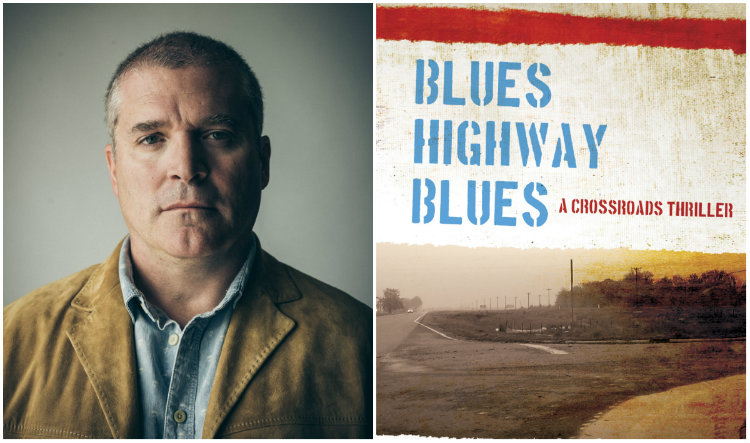
“People often think of History as an esoteric pursuit, but I believe that nothing could be further from the truth. History is absolutely, without a doubt the most practical discipline you can study for no other reason than it’s the scholarly examination of everything. Politics. Business. Science. Society. Obviously, understanding those historical trends is as important in the practice of law or writing as it is to pursuing more business-oriented careers. What I really learned as a History major at Gettysburg was how to work. I’m sure the technical advances that have been made since I was at Gettysburg have revolutionized how that work is done today, but when all research had to be conducted in the library and term papers had to be typed, the work load was extremely demanding. I remember a January Term course I had that required six papers. Six papers in under a month! So the skill I learned at Gettysburg that served me best in my life afterwards was a certain kind of work ethic.”
Jen Giambrone ’10, Digital History Fellow at White House Historical Association
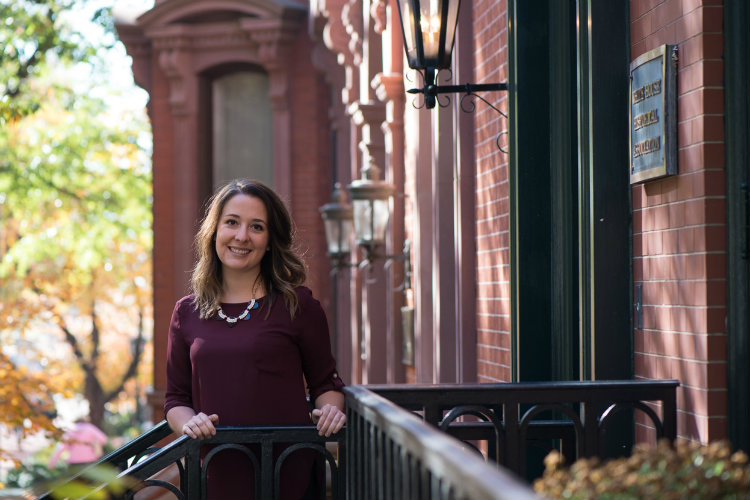
“I decided to study history without any intention of teaching. I grew up going to some wonderful museums in my hometown of Rochester, New York, some of which I would later intern or work at, and early exposure made a lasting impact. I have also always had a love of storytelling - I still have a crate of "books" I wrote when I was a kid. In college, it became apparent that a career at a museum or historic site would engage both my love of writing and history, and also enable me to make a real public impact through my work.”
Brent LaRosa ’00, Foreign Service Officer at the U.S. Department of State
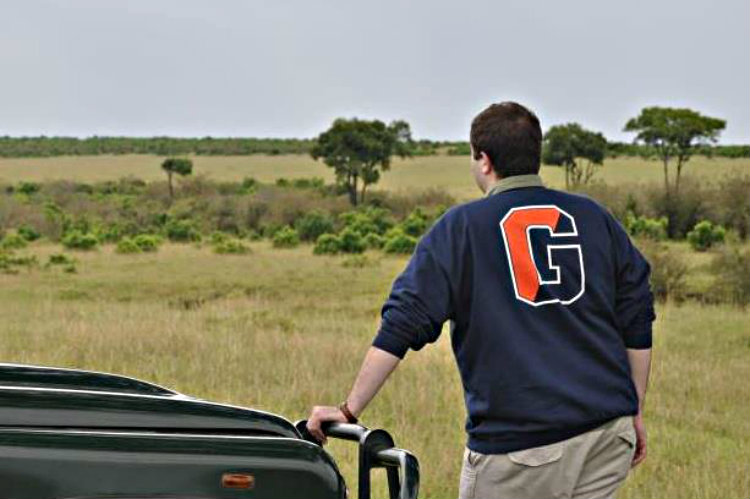
“I’ve always loved history. I had good teachers in primary school and high school that made the subject interesting and relevant. I grew up in an area (near Boston) where the local history is immediate and palpable. It was only later, after travelling and participating in international teacher exchange programs, did I think about a career in international affairs. Much of my current job involves helping our embassies overseas coordinate the U.S. Government’s many cultural, educational, and professional exchange programs in Maritime Southeast Asia. My history degree has helped me in so many ways. As a diplomat, a sense of history is critical to relating to foreign audiences and to telling the American story. I use my critical thinking and writing skills every day.”
Amanda Mehring ’10, Plant Lead at the Starbucks Roasting Plant and Distribution Center
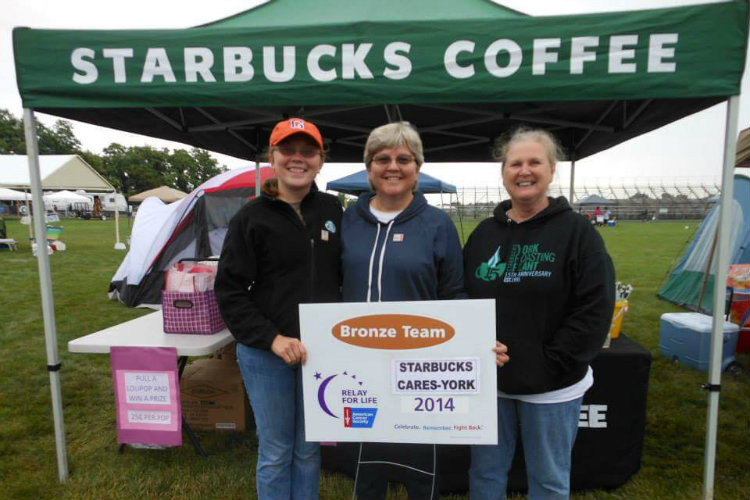
“I chose to study history because it was always a subject I enjoyed studying in school. I could always get absorbed in the story. Now, I work in leadership at Starbucks—I just celebrated four years as a partner and plant lead at Starbucks this February! We have a program called Coffee Masters that all employees go through. You learn all about different aspects of the history of coffee, such as where and how it is grown, what the different types of roasts and processing methods are, and the history of the beverage. While I enjoyed it, we’ve received a lot of feedback that prompted us to re-examine the course. I was actually brought on to redesigned the entire course using the skills I learned as a history major and created something that people have found much more engaging—all it needed was someone with a passion for history to reframe it!”
